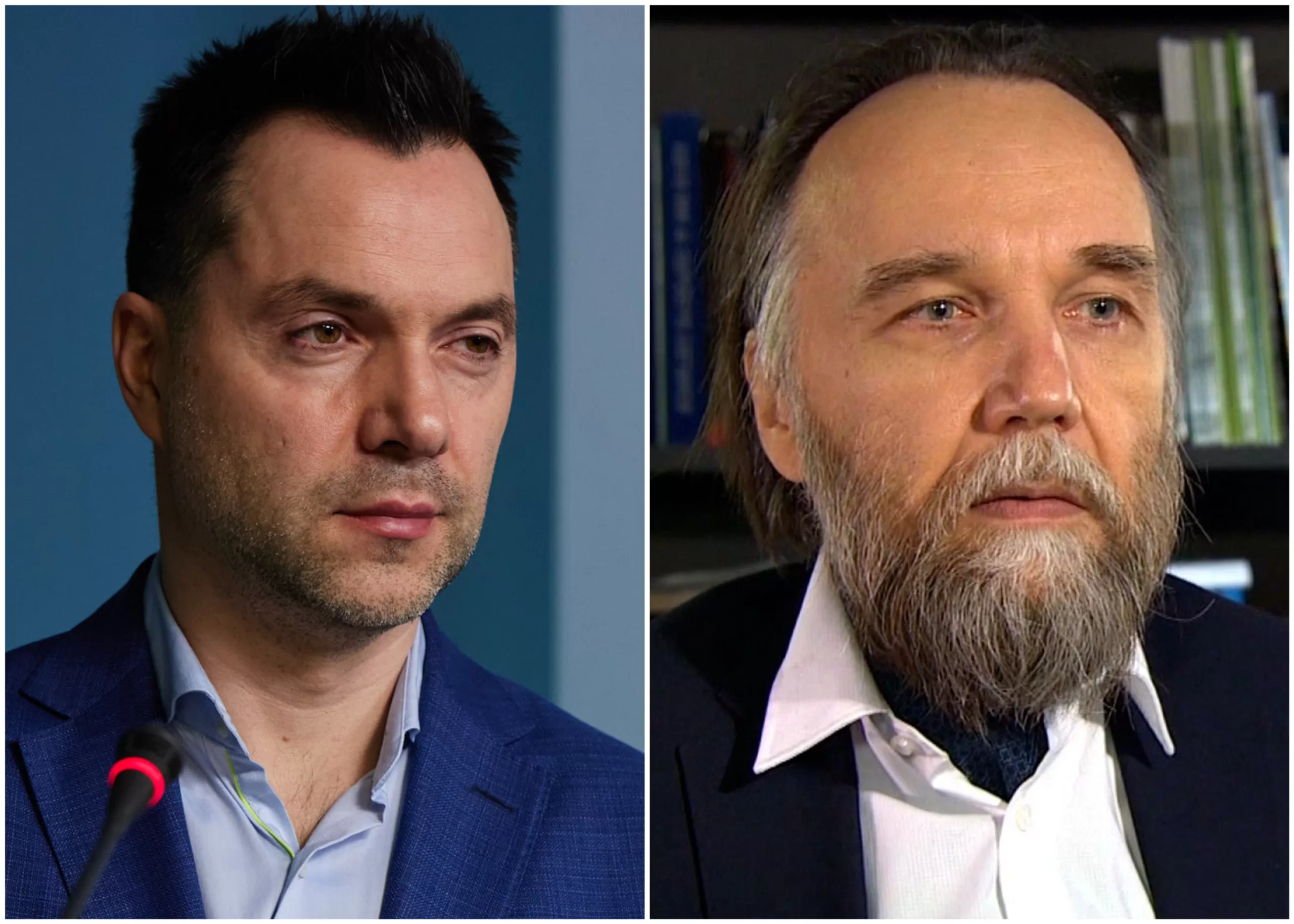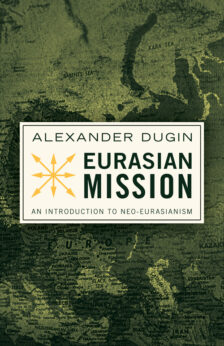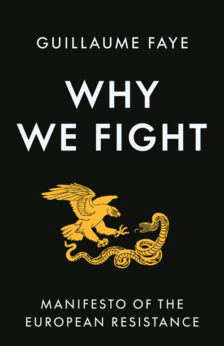Alexey Arestovych (on the left), former advisor to Ukrainian president Zelensky, is a bright mind. Once a Ukrainian officer, he had to resign in January 2023 after attributing the destruction of a high-rise building in Dnipro to Ukrainian air defence rather than a Russian missile strike. Such objectivity is, of course, completely unacceptable in war. A criminal case was opened against Arestovych, and he fled abroad. He now lives under police protection in Munich.
Recently, he gave a remarkable interview to the British online media outlet UnHerd, in which he sharply criticises the Zelensky government and Ukrainian nationalism in general. He believes that nationalism is catastrophic for Ukraine’s survival as it threatens to tear the country apart. Ukraine is home to over a hundred different nationalities, but since 1991, immediately after the end of the Soviet Union, Kiev’s policy has aimed to turn the country ‘into a more mono-ethnic and mono-cultural country’.
Arestovych said,
And you know, my great criticism of what has happened in Ukraine over the last year, during the emotional trauma of the war, is this idea of Ukrainian nationalism which has divided Ukraine into different people: the Ukrainian speakers and Russian speakers as a second class of people. It’s the main dangerous idea and a worse danger than Russian military aggression, because nobody from this 80% of people wants to die for a system in which they are people of a second class.
Furthermore, he argued that Ukraine must remain ‘multicultural’ and become a federation. Wise, albeit belated words. For Ukraine, it is probably too late, and if the West, as it seems, loses interest in it, Kiev will be lucky to have a demilitarised rump state left that can no longer pose a threat to anyone.
Apart from Ukraine, what Arestovych says about ‘nationalism’ — not just the Ukrainian variety — is correct. Franz Grillparzer famously observed that the path leads ‘from humanity through nationality to brutality’ — a brief glance at the last 200 years of European history confirms this. Nationalism, born of the bourgeoisie and its financial interests that rose with the French Revolution, can claim the distasteful credit for pitting nations against each other to this day and obscuring who benefits from it. Ukraine, with its West-induced hatred of everything Russian (and all other national minorities), is just the latest victim of nationalist delusion, paying a high price for it.
Alexander Dugin (on the right) correctly notes in his book Eurasian Mission:
I cannot defend the concept of the nation, because the idea of the “nation” is a bourgeois concept concocted as a part of modernity in order to destroy traditional societies (empires) and religions, and to replace them with artificial pseudo-communities based on the notion of individualism. All of that is wrong. The concept of the nation is now being destroyed by the same forces that created it, back during the first stage of modernity. The nations have already fulfilled their mission of destroying any organic and spiritual identity, and now the capitalists are liquidating the instrument they used to achieve this in favour of direct globalisation.
Of course, this is strong stuff for all ‘nationalists’. It seems that it will take the next major war to open the eyes of those who survive it. Until then, nothing will change. But do not worry: NATO is working hard to ensure that it comes to us too. As long as it has a say in Europe, neither the Germans nor any other Europeans will find their way to themselves.








